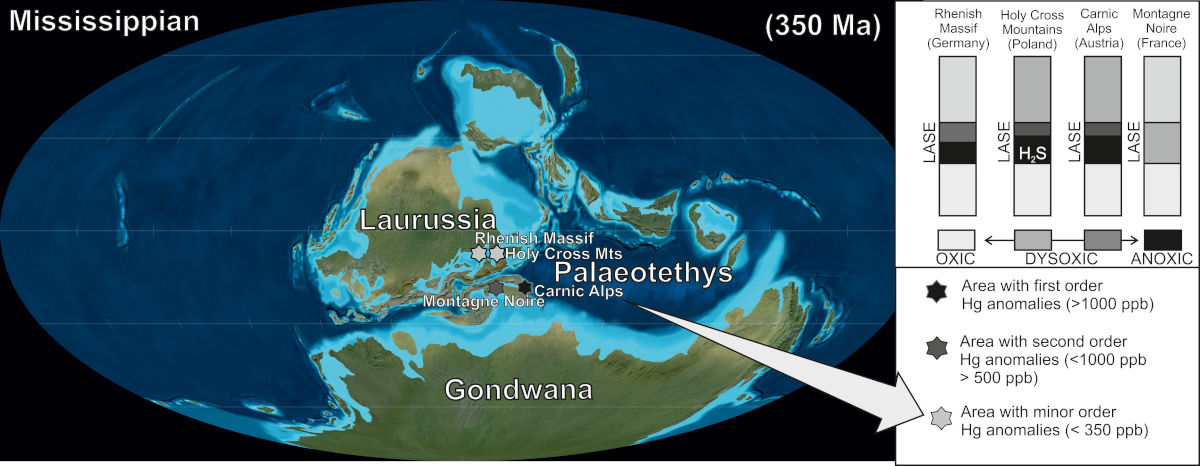The August issue of Global and Planetary Change, published an article, authored by researchers from the Institute of Earth Sciences at the University of Silesia in Katowice Michał Rakociński, Jakub Kucharczyk, Agnieszka Pisarzowska, Michał Zaton, Leszek Marynowski and a German researchers Sven Hartenfels (Geologischer Dienst Nordrhein-Westfalen, Krefeld) and Ralph Thomas Becker (Westfälische Wilhelms University, Münster), on the record of a mid-Tournaisian anoxic event. This event occurred about 355 million years ago and affected numerous groups of marine organisms as anaerobic conditions in the seas and oceans emerged on a global scale. However, since many groups did not have time to recover from the late Devonian extinction, the scale of the extinction was therefore smaller than would be expected given the severity of the observed global environmental changes.
The authors performed detailed geochemical and petrographic analyses at the classic Drewer site (Rhenish Slate Mountains, Germany), which compared to other areas where the LASE were recorded and studied, providing a broader picture of changes in marine settings during that important Mississippian event. The results obtained in the present study show that the conditions during the LASE in pelagic setting were not uniform, with variable bottom-water oxygenation and different proximity and influence of volcanic activities. The numerous regional magmatic centers are considered as potentially responsible for the drastic depositional changes at a local scale and the bioproductivity increase at the global scale.
This study summarizes the results of the NCN OPUS project (UMO-2014/15/B/ST10/03705) entitled Depositional environments during the Lower Alum Shale Event (Early Carboniferous) on the southern shelf of Laurussia in the light of integrated geochemical, paleoecological and facial investigation, led by Michał Rakociński (Institute of Earth Sciences, University of Silesia). The research activities co-financed by the funds granted under the Research Excellence Initiative of the University of Silesia in Katowice.
Rakociński, M., Kucharczyk, J., Pisarzowska, A., Zatoń, M., Marynowski, L.,
Hartenfels, S., Becker, R.T. 2023. Redox changes and mercury signature during the Lower Alum Shale Event (mid-Tournaisian, Mississippian) in the Rhenish Massif: Implications for oxygenation history and volcanism in southern Laurussian shelf and Palaeotethys Ocean. Global and Planetary Change 227, 1–19.
https://www.sciencedirect.com/science/article/abs/pii/S0921818123001388






